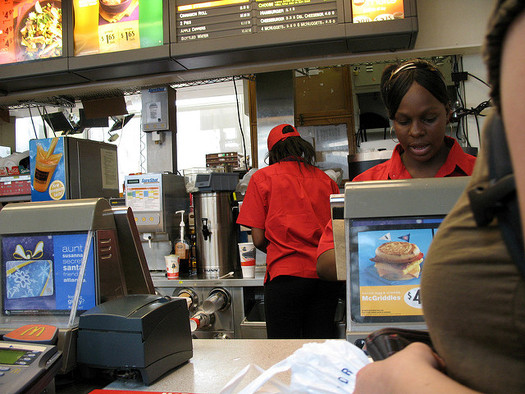

Share
A new report says black workers in Minnesota and across the country would see the biggest boost if Congress raises the federal minimum wage to $15 an hour.
The Raise the Wage Act of 2019 would increase wages for 38 percent of all African-American workers, and 23 percent of white workers, according to the Economic Policy Institute report. Wade Luneburg, political director with hospitality union Unite Here, said no Minnesotan who works full time should have to live in poverty.
“I do believe that it would have a large impact on all people of color and also women in the workforce,” Luneburg said. “So many minimum-wage jobs and low-wage jobs fall into things like fast food, and hospitality, retail, building services.”
The minimum wage in Minnesota is currently $9.86 an hour, and is set to be adjusted every year according to inflation. The federal minimum wage has not increased since 2009.
Critics of raising the wage floor have argued that most minimum-wage workers are teenagers, not heads of households. And they argue the move would lead to job losses or higher costs passed along to consumers.
Luneberg argued when the minimum wage goes up, the money doesn’t end up in offshore accounts – it goes directly back into the economy for food, rent and other essential expenses. He pointed to years of research showing that teenagers do not make up the majority of minimum-wage workers in Minnesota or the rest of the country.
“These folks are the head of a family; they’re often working two jobs,” he said. “I can speak for workers in our industry. They are oftentimes working in a hotel during the day, and in the evening they’re cleaning office towers.”
The report found that not only are black workers disproportionately represented in minimum-wage jobs, they are also less likely to live in areas that have taken steps to raise the wage floor. The proposal recommends raising the federal minimum wage from $7.25 per hour over six steps, reaching $15 per hour by 2024.

